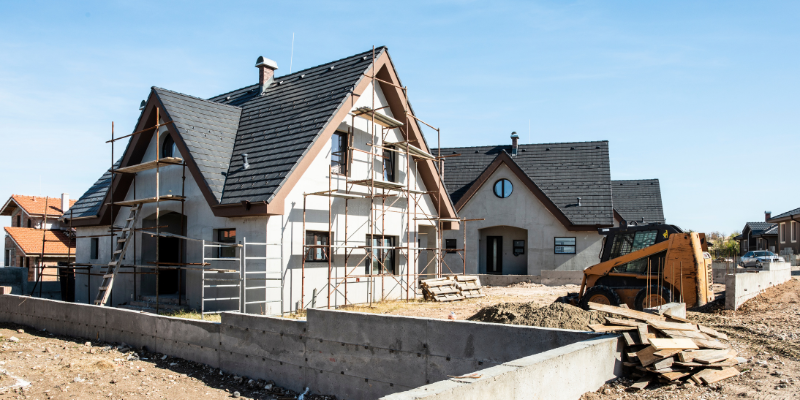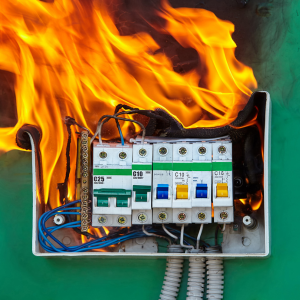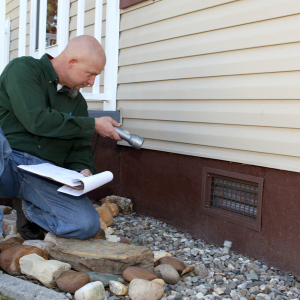
If you need to sell a house with unpermitted work in St. Petersburg, FL, Revival Homebuyer can guide you through the process and help you find the best path forward.
Key Considerations for Selling a House with Unpermitted Work
When selling a property with unpermitted modifications in St. Petersburg, FL, it is essential to proceed cautiously to avert possible legal and financial repercussions.
Comprehending the local real estate market and regulations is crucial, as St. Petersburg has distinct building codes and permitting needs.
Consulting a proficient real estate professional well-versed in these regulations can offer essential assistance. Disclosing any unauthorized work to prospective buyers is crucial for maintaining transparency and fostering confidence, which can be supported by comprehensive documentation of the enhancements undertaken.
Sellers should contemplate acquiring retroactive permissions, since this may enhance the property’s value and attractiveness by mitigating buyer apprehensions over potential liabilities or compliance challenges. Moreover, appropriately pricing the home by considering any unpermitted work would entice serious purchasers and avert protracted negotiations or the collapse of offers owing to unforeseen issues.
Engaging a local real estate attorney may be advantageous for comprehending potential hazards and assuring compliance with Florida’s real estate disclosure requirements.
Legal Implications of Selling a House Without Permits
If you are selling a house in St. Petersburg, FL, with work that hasn’t been approved by the city, you could be breaking the law in big ways.
If you make changes or repairs to a property without getting the right permits, it might not follow local building rules and codes. This can be risky during the sales process because people might not want to buy a house that needs expensive changes to meet code requirements.
Also, sellers must tell potential buyers about any work that isn’t allowed so that they don’t get sued or have to pay fines in the future. If you don’t do this, you could be accused of lying, which can lead to lawsuits or fines.
It’s also important to keep in mind that lenders and insurers may be hesitant or even refuse to work on homes that have work that isn’t allowed, which can make the deal even more difficult. Talking to a real estate lawyer who knows Florida’s laws can help you figure out how to best handle these problems and make sure you’re following the rules while reducing risk.
Selling a house without permits can cause legal and financial issues. At Revival Homebuyer, we buy houses in St. Petersburg and nearby cities, offering a fast, hassle-free solution.
Analyzing the Benefits and Risks of Renovating Before Selling

When thinking about selling a house in St. Petersburg, FL, that has unpermitted work, it’s important to carefully evaluate the advantages and disadvantages of renovating before putting the property on the market.
Renovating has the potential to boost a home’s market value and draw in more buyers by enhancing its overall appeal and functionality. Addressing unpermitted work through renovation can be both expensive and time-intensive, as it typically involves securing permits and adhering to local building regulations.
Conversely, opting to leave the unpermitted work untouched may appear to save costs, yet it could dissuade prospective buyers who are concerned about potential legal complications or issues that may arise during inspections. Moreover, savvy purchasers might push hard on pricing if they sense any lingering permitting concerns.
Consequently, although renovations can boost a property’s appeal and market presence in St. Petersburg’s competitive real estate market, they also carry financial risks that require thoughtful evaluation in relation to potential returns.
Common Challenges in the Home Selling Process and How to Overcome Them
Transacting a property with unpermitted modifications in St. Petersburg, FL, poses distinct problems that homeowners must adeptly manage to facilitate a successful sale. A prevalent concern is the possibility of legal and financial ramifications stemming from unauthorized modifications or extensions.
Prospective buyers may exhibit reluctance to acquire a property with outstanding permit issues due to concerns regarding potential liabilities or expensive repairs necessary to achieve compliance with regulations. To handle this issue, sellers should initially seek advice from local real estate professionals or attorneys knowledgeable about St. Petersburg’s permitting rules, who can provide direction on resolving these matters.
Disclosing all known unpermitted work upfront may foster trust with prospective buyers and mitigate unforeseen issues during inspections. In certain instances, sellers may want to acquire retroactive permits before advertising the property, necessitating collaboration with professionals knowledgeable about local building laws to address any non-compliant features of the home. Moreover, competitively pricing the property while accounting for expenses related to unpermitted construction might enhance interest and streamline discussions.
By actively addressing these difficulties, homeowners enhance their likelihood of successfully selling their properties in St. Petersburg’s dynamic real estate market.
Building Trust with Potential Buyers Through Transparency and Honesty

When selling a house in St. Petersburg, FL, it’s essential to build trust with potential buyers by being transparent and honest about any unpermitted work.
Start by transparently revealing any unauthorized renovations or changes to guarantee that buyers have all the necessary information right from the beginning. Offering comprehensive documentation regarding the nature of the unpermitted work can help ease concerns and showcase your dedication to transparency.
Participate in transparent discussions, addressing inquiries honestly and sharing reasons for the absence of permits. This method builds trust and dependability, enabling purchasers to feel more assured about their investment.
Moreover, providing options like securing retroactive permits or modifying the sale price can enhance buyer confidence, demonstrating your commitment to addressing any potential concerns in a responsible manner. When you focus on transparency during the selling process, you foster a setting where buyers feel valued and knowledgeable, leading to a more seamless transaction even in the face of challenges related to unpermitted work.
Can You Sell a House with Unpermitted Work in Florida?
In Florida, including St. Petersburg, it is possible to sell a house while doing work that isn’t allowed, but you have to be very careful about some legal issues and problems.
You can sell your home as a cash house in Tampa and the surrounding areas, even if you completed work without a permit. To prevent future issues and fines, inform potential buyers fully and provide complete details about any repairs or modifications made without proper permits.
Being honest like this not only builds trust but also helps you follow Florida’s real estate disclosure laws. To sell such a house, you might want to get permits for the work that wasn’t allowed, if it’s possible to do so. This could mean having the work inspected and brought up to current building codes.
Talking to a real estate person who has dealt with homes that have work done on them without permission can be very helpful. They can help you through the process and help you set a fair price that reflects the condition of the property while also marketing it well to get buyers who are ready to deal with these problems.
Knowing the rules in St. Petersburg and talking to professionals like builders or inspectors can also help you get rid of any worries you have about work being done without permission before you put your house on the market.
What Happens If You Get Caught Remodeling Without a Permit in Florida?

Remodeling without a permit in Florida, particularly in St. Petersburg, can lead to numerous complications that may hinder the successful sale of your home. Unauthorized construction can result in fines and penalties from local building officials.
Furthermore, you may be obliged to halt building until relevant permissions and inspections are secured and completed, which might considerably delay your project. In some situations, if the work does not match building rules or safety standards, you may have to replace it totally, incurring additional fees. When selling a St. Petersburg home with unpermitted renovations, it is critical to resolve these issues right away. Disclosing any unpermitted improvements to potential buyers is critical for openness and compliance with real estate laws. Buyers may be hesitant or negotiate lower rates due to the perceived hazards connected with unpermitted changes.
To effectively address these challenges, it’s advisable to seek guidance from a real estate expert familiar with the local market and legal stipulations in St. Petersburg. This will help ensure that all essential measures are taken to rectify unpermitted work issues prior to putting your property on the market.
Remodeling without a permit can result in fines, delays, or issues when selling your home. For more help, Contact Us at Revival Homebuyer.
Can You Sue a Previous Homeowner for Unpermitted Work?
When people buy a house in St. Petersburg, FL, and find unpermitted work on it, they often wonder if they can sue the previous owner for not telling them about the problems.
As a matter of law in Florida, sellers must tell buyers about any known major problems with the property that might lower its value. This includes work that wasn’t allowed to be done. A buyer may be able to sue the former owner for fraud or misrepresentation if they can show that they knew about work that wasn’t allowed and didn’t tell the buyer about it before the sale.
To go to court, you’ll have to show that the seller knew about the illegal work and purposely kept this information from you. It’s important for buyers who are dealing with unpermitted work to talk to a real estate lawyer who knows Florida’s disclosure rules. This will help them figure out their legal options and see if they can sue.
This step is very important for settling disagreements about renovations or additions that were not reported or approved, and for making sure that local building rules in St. Petersburg are followed.
Looking to sell your home quickly? Skip repairs, save time, and enjoy a stress-free experience with Revival Homebuyer. We buy houses for cash, handle all the paperwork, and keep things simple. Call (813) 548-3674 now for your no-obligation cash offer.
| BROKER | LAWYER | STATE OF FLORIDA | ST PETERSBURG | PROPERTY APPRAISER | PLUMBING |
| PLUMBING SYSTEMS | INSURANCE | ROOF | HOME INSPECTIONS | HOME INSPECTOR | FEES |
| LIEN | HOA | HEATERS | HVAC SYSTEMS | HEATING, VENTILATION, AND AIR CONDITIONING SYSTEMS | BLOG |
| BEDROOMS | PINELLAS COUNTY | PATIOS | MONEY | KITCHEN | FEMA |
| BLUEPRINTS | BATHROOM | BASEMENT |
Helpful St. Petersburg Blogs
- Selling Inherited Property With Multiple Owners In St. Petersburg, FL
- FSBO Costs For Home Sellers In St. Petersburg, FL
- Foreclosure Timeline For Homes In St. Petersburg, FL
- Vacant Home Regulations In St. Petersburg, FL
- Who Pays HOA Fees At Closing In St. Petersburg, FL
- Sell A House With Unpermitted Work In St. Petersburg, FL

